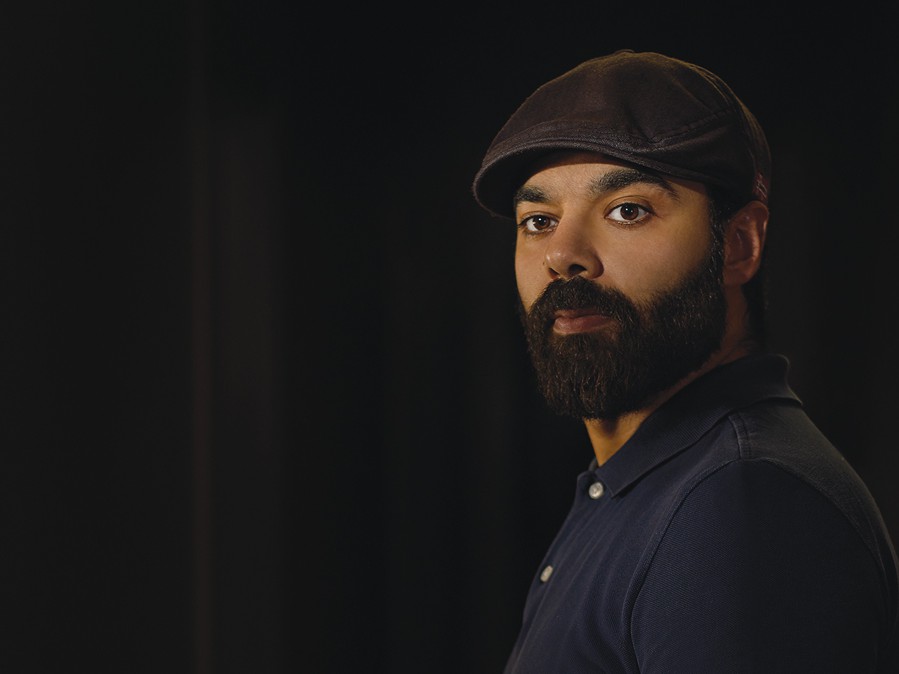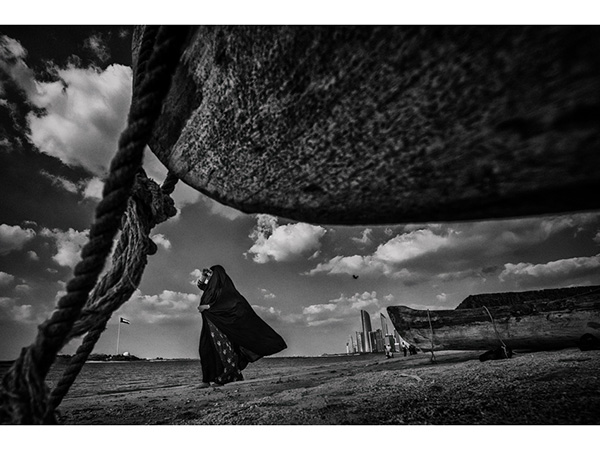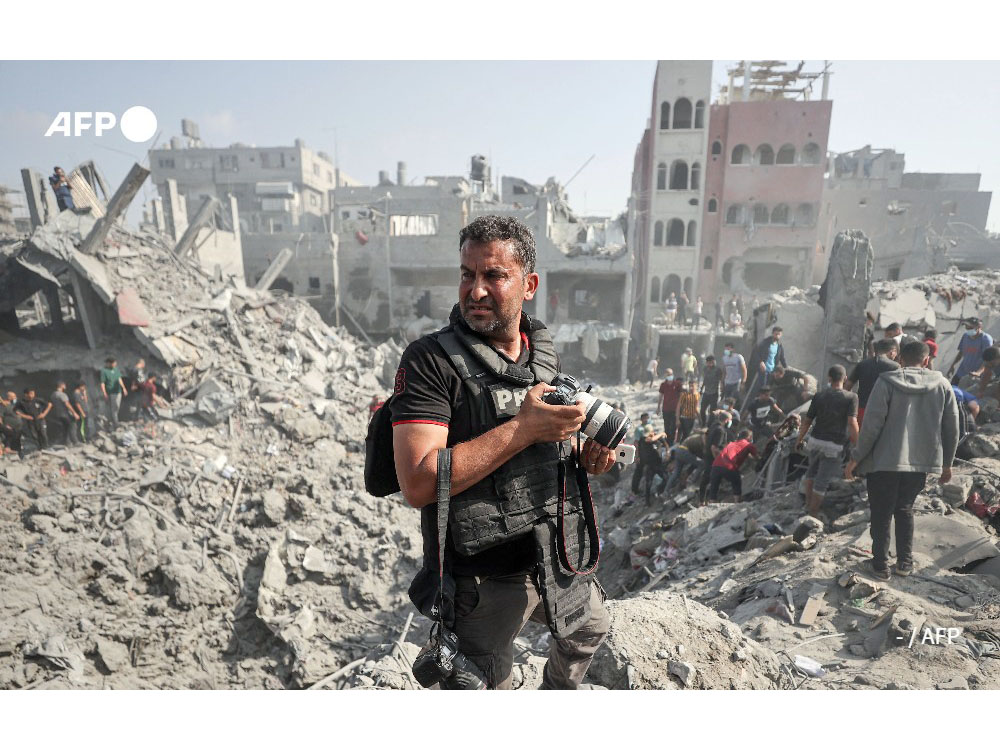Art & Design
Beyond the Visible
September 8, 2015

What’s the best part of being a photographer?
There is no doubt that creation is the best part and the main motive in all genres of art. As an advertising and fine art photographer, my pleasure ignites with the birth of an idea and continues along the production process and the execution of the final visual. This whole procedure is by far the most enchanting experience that never fails to add enlightenment to my soul as an artist. Photography beyond the fact that it immortalises the moments, it also reintroduces beauty. It exposes it out of its normal casualty where most of us really don't have the time for noticing it, because of nowadays’ rapid pace of life.
What’s the hardest part of your job?
The hardest part of my job is handling projects that have limited time and urgent deadlines, where it becomes really tough to smoothly move from a phase to another giving each step the required time and space it actually needs in order to obtain the best results without stress.
If not a photographer who you would have been?
I am sure that I would have never given up on arts and creativity. If not a photographer, I would have gone further in my previous career as an animation director.
How would you describe your style? And how did you develop it?
I have always found myself attracted to expressing my art in reminiscence to the mid 1900s. This era indeed is such an inspiration to me for how much greatness and richness it beholds of cultural and intellectual movements as well as a leap in modern art and huge changes in political systems.
Which photographers inspired you most, and how did they influence your thinking, style, and career path?
One of the big names who had been a great inspiration to me at the beginning of my career is the German photographer Roland Fisher whom I met in Doha in 2008. This man was my gate to the world of fine art. In addition to other names such as Gregory Crewdson, Erwin Olaf, Philip Lorca Dicorcia, Annie Leibovitz, and Eugenio Recuenco.
How do you educate yourself to take better pictures?
In order to expand my knowledge and develop my artistic abilities, I've constantly done the following:
- Passionately reading fine art books and publications especially about the history of art and different art movements, in addition to literature, which has contributed a lot in enriching my creativity and imagination.
- Observing and analysing different visual art materials in addition to photographic works.
- Finally shoot, shoot and shoot!
One of today’s main discussion points amongst photographers is about the use of digital photography; do you use digital cameras? And what is the influence of digital technology on your photography?
Since my beginnings as a photographer, digital photography was my choice. Fortunately, the industry of digital cameras has evolved really well and it reached a level where it's almost very hard to differentiate between the results of digital and film cameras. Regarding post production digital processing is a double-edged sword because while it allows the photographers to edit their photos in a faster and more delicate way with a lower cost, it also allows some new photographers to abuse this feature and overdo digital retouching and colouring instead of actually taking good photos. Depending only on these features may threaten the whole artistic values of photography. I see it as a growing misconception between photography and photo manipulation.
What kind of mode do you go into when photographing a concept or idea you are passionate about?
It is very hard to describe, because I honestly never had so much pleasure as much as I had while working on a concept of my own or on a job that gives me enough space to freely reflect my personal vision. Although this usually means more mental and physical efforts, but according to my experience, that space usually turns to a more satisfying result for me and the client.
We know that each of us has someone or something, which inspires our life and work. Can you tell us the true basis of your inspiration, the point of departure for a photo session?
Observing the hidden psychological and philosophical meaning in my surrounding and all events of life whether personal or public, makes life itself an eternal flowing river of thoughts and inspirations.
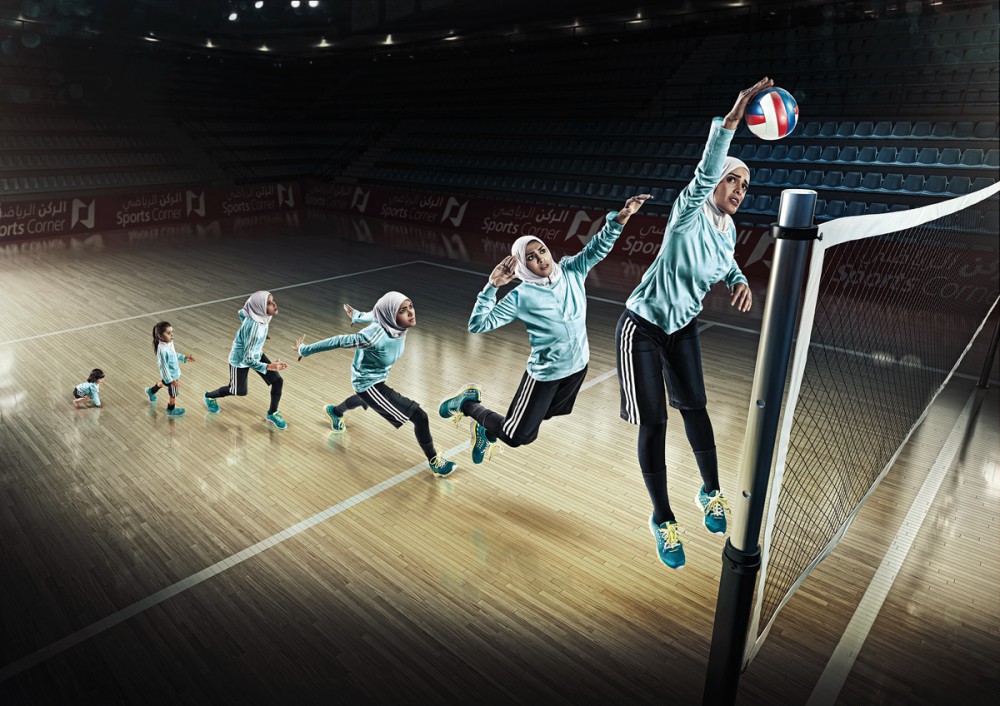
What is the favourite image you have shot recently? Can you describe its creation...
I can tell you about a campaign, which I consider one of the best work I have done recently. It's 'With You Since 1979' commissioned by Sports Corner.
The visuals show the journey that Sports Corner has taken with the people of Qatar through a sentence expressed by an athlete that goes from one milestone to the other and ends by scoring/achieving a goal.
To get the best results in the image a 3D pre-visualisation was done and it helped a lot in imagining the camera placement and its height, in addition to the placement of the athletes accordingly. The biggest challenge was getting the talents to make the actual body movements identical to those of real athletes in the game. This situation leads me to hire real players and coaches to direct the talents movements in the best shape. I also had to rent a cinematic special effects wiring system to help the 'players' (characters) stay still in the air while shooting. Moreover, it wasn't easy at all finding similar facial features in complete strangers of different ages in order to make them look as a one person in each visual. All the characters were shot inside the studio on a white backdrop while the stadiums were built using CG. 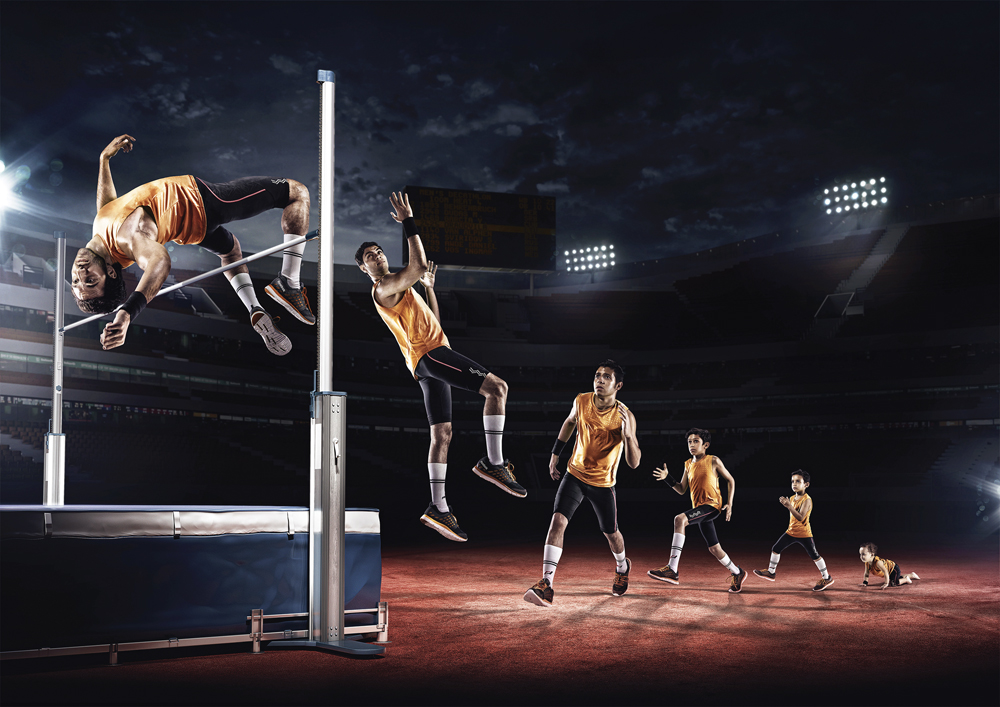
I used six flash units to draw the lighting on the characters and two flash units along two HMI units for even lighting in Sports Corner-Volleyball the background. In this campaign, I used my Hasselblad 503CW with a 50mm lens. Settings were: ISO 100, shutter speed 1/250s, aperture f11.
What makes a good picture stand out from the average?
I believe that a successful photo is a photo that crosses the visual beauty to reach the inner self of the viewer bringing to him certain memories and feelings that directly relate to him in person. Speaking about advertising and conceptual photography, the originality of the concept and the ingenuity in executing it, determines the standards of a successful visual.
Can you tell us about a project you've felt really connected to and why?
My art project 'Alienation', which I'm still working on is one of the most important projects to me and the closest to my heart. It is a concept that took two years of conceptualisation and preparation until it finally just started to see the light. The concept reveals the feelings of grief, defeat, and refraction that have taken over the Egyptian divinities, those who were once the gods of one of the greatest cultures in history. When they realised that there is no use of staying, and in a certain moment, they just decided to leave all this glory behind and run away from their painful reality and undetermined future.
Do you get to work with ad agencies on specific assignments?
Yes, I have been working with several international advertising agencies in addition to many projects that I got through production houses and photographers agents. I also dealt with publishing houses while other projects I got directly through clients.
Do you see yourself as a photographer many years down the road?
My passion for photography and the concepts that I have in mind will probably fill many more years to come. Let’s hope I could bring out to light most of these ideas during my journey as a photographer.
What advice do you have for photographers just starting out?
My advice is to never limit your development to the technical side only without opening yourself to all aspects of art. Nourishing your artist's soul will guarantee your unique character as a professional photographer.
Last but not least, keep your camera ready in order to take shots whenever and wherever it's possible.
On The Technical Front…
Nikon or Canon, other? I'm using a full frame Nikon D3x and a medium format Hasselblad 503cw with Phase One P40+ digital back.
Favourite lens? Hasselblad 50mm f4 FLE Zeiss Distagon CFI.
Favourite photographic accessory other than your camera? My light meter, Sekonic L-758DR.
Favourite computer/ editing accessory other than your computer? My light meter, Sekonic L-758DR.
What is your most used Photoshop tool, plug-in, action set etc.? Clone tool, healing tool and selection tools.
Are you a Mac or PC lover? Mac.
www.habbykhalil.com
Facebook: habby.khalil.photography
Topics
Recommended
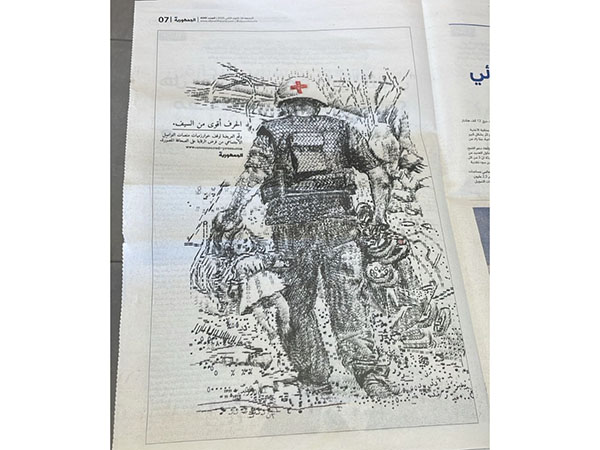
'Uncensored Press’: Overcoming algorithmic censorship to uncover war’s truth
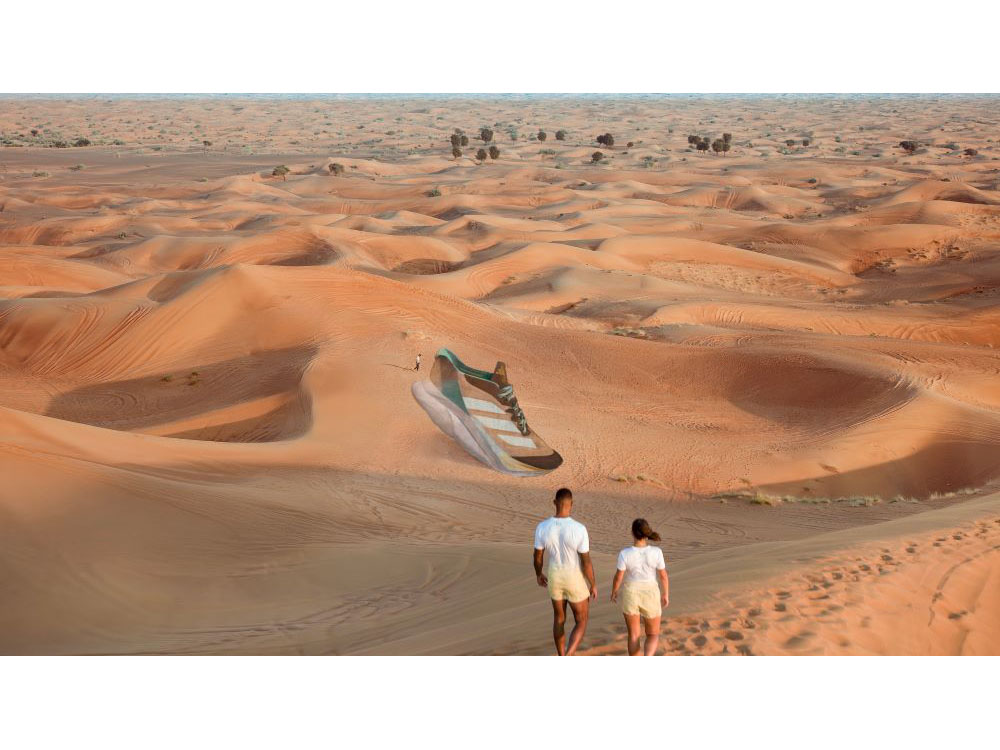
An exciting collaboration between adidas Arabia and earth artist David Popa brings together the power of art, nature and sports
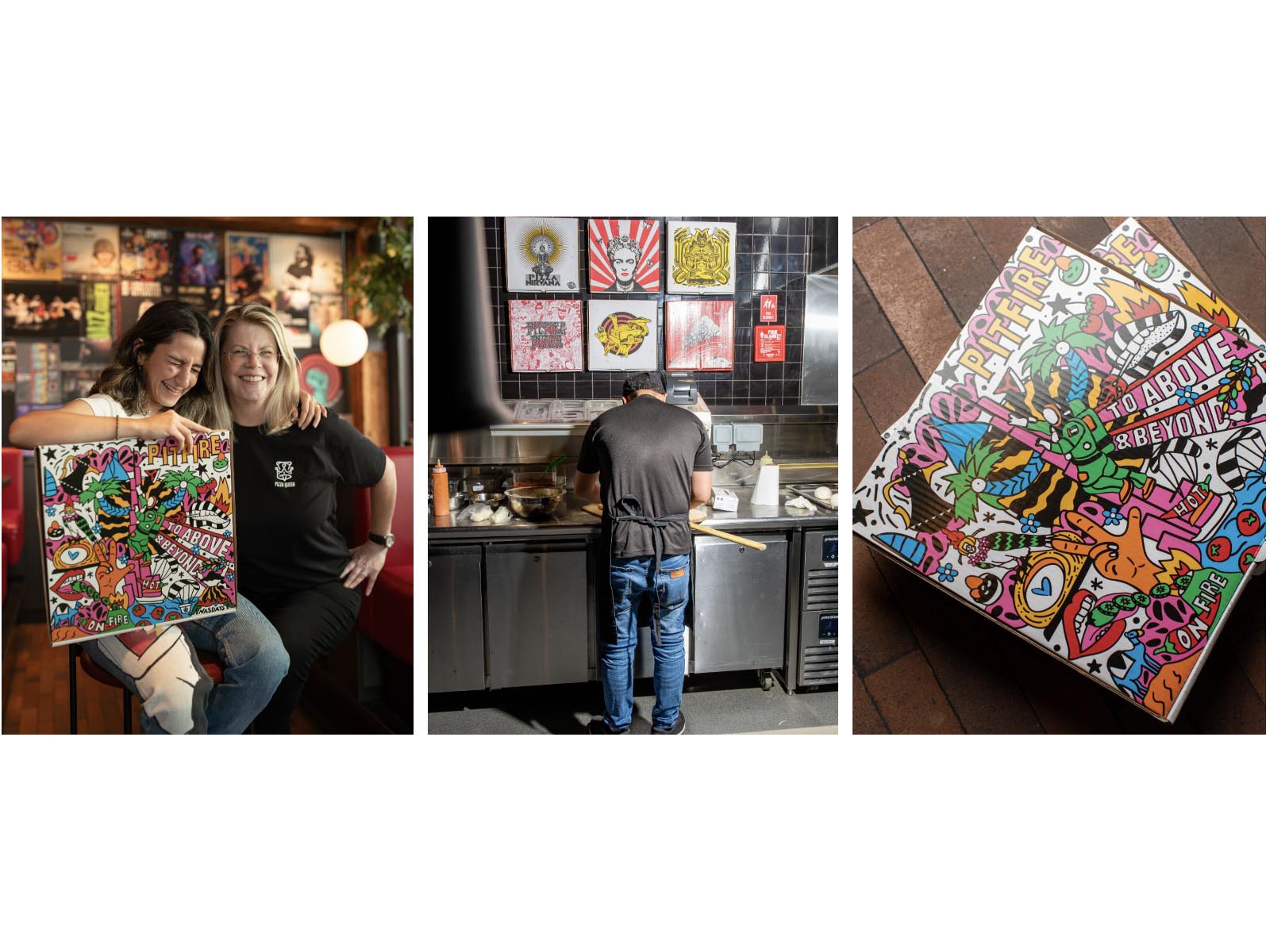
Pitfire’s Box Art Program: how a homegrown brand transformed its packaging into a creative platform to support local talent



